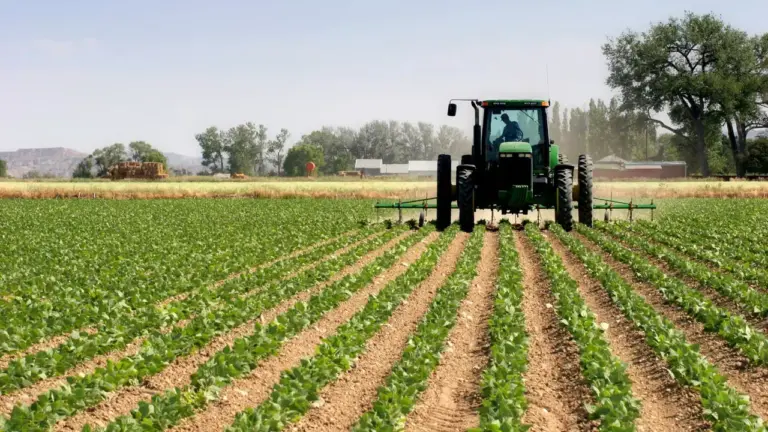Nigeria is pouring an astonishing $10 billion each year into food imports — from wheat and rice to sugar, fish, and even tomato paste. For a nation blessed with fertile soil and abundant youth power, this dependence has become a paradox the government says can no longer continue.
Speaking at the First Bank Agric and Export Expo 2025, Minister of Agriculture and Food Security Abubakar Kyari — represented by his aide Ibrahim Alkali — lamented the heavy import bill and urged a total rethink of how agriculture is financed.
Despite agriculture contributing 35% to GDP and employing over a third of the workforce, Nigeria earns less than $400 million annually from agro-exports. “We sit on 85 million hectares of arable land with a youth population where over 70% are under 30, yet our share of global agro-exports is below 0.5%,” Kyari noted.
According to him, the imbalance points to a deeper issue: Nigeria’s farming potential is vast, but its financing and infrastructure remain weak.
Toward Food Sovereignty
President Bola Tinubu has placed food sovereignty at the heart of his economic agenda. The goal, Kyari explained, is not only for Nigeria to feed itself but to do so independently, shielded from shocks in global supply chains. Food security, in this vision, means no Nigerian should go hungry because of international disruptions.
“Boosting local production and strengthening exports are not competing goals — they are inseparable,” Kyari stressed. “The land, the labour, and the markets are here. What’s missing is the system of financing, value addition, and infrastructure that can transform potential into prosperity.”
The Shift From Oil to Agriculture
Kyari outlined a radical pivot Nigeria must make:
-
From reliance on oil rigs to resilience in food systems.
-
From exporting raw commodities to building value-added agribusiness.
-
From fragmented farmer credit schemes to structured financial systems capable of attracting significant investment.
-
From sidelining young people to actively mobilising youth in agriculture.
Innovative Financing as the Game Changer
To break dependence on imports, Kyari pushed for innovative financing mechanisms such as:
-
Performance-triggered agricultural loans
-
Forward contracts and factoring systems
-
Pay-as-Harvest schemes
-
Smarter revenue-sharing models
“These are not abstract concepts,” he said. “They are tested models already transforming agriculture in other economies. Nigeria can adapt them — and must, if we are serious about turning agriculture into our new engine of wealth.”

